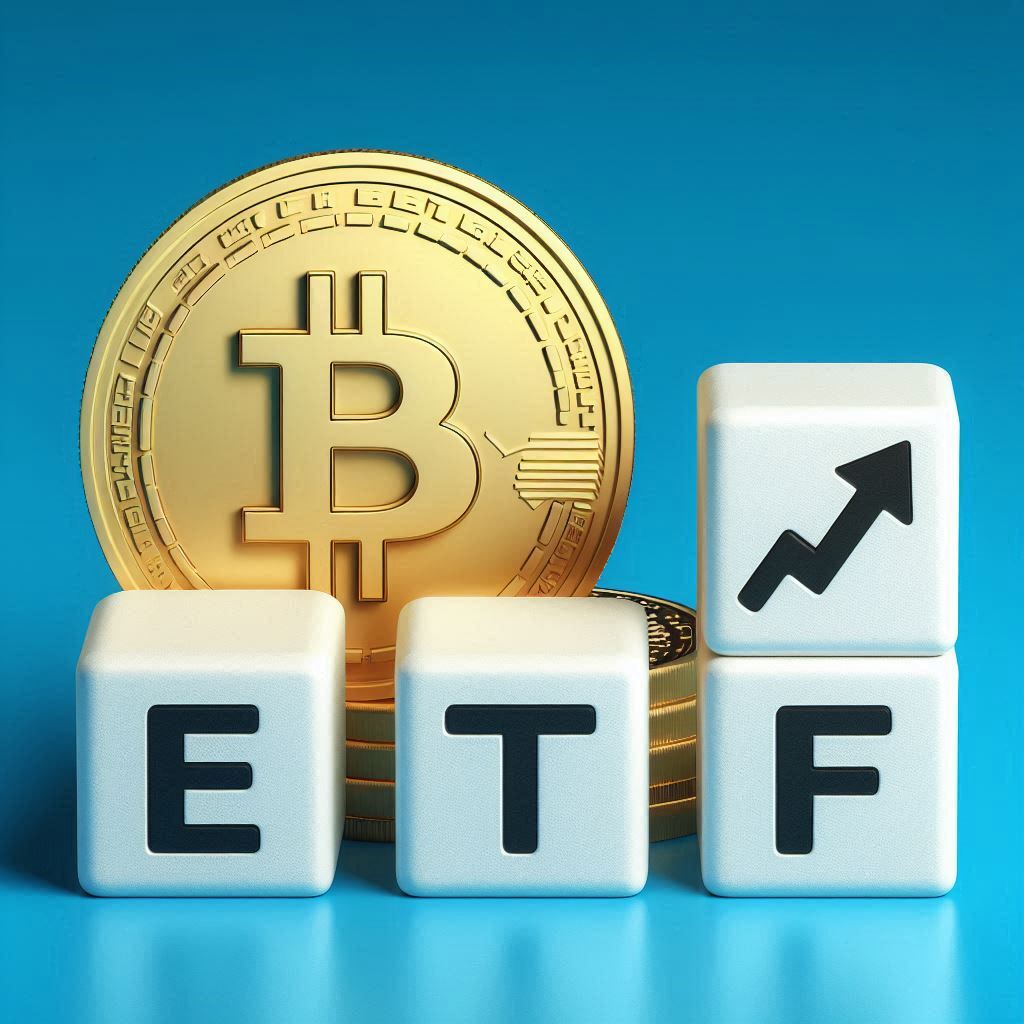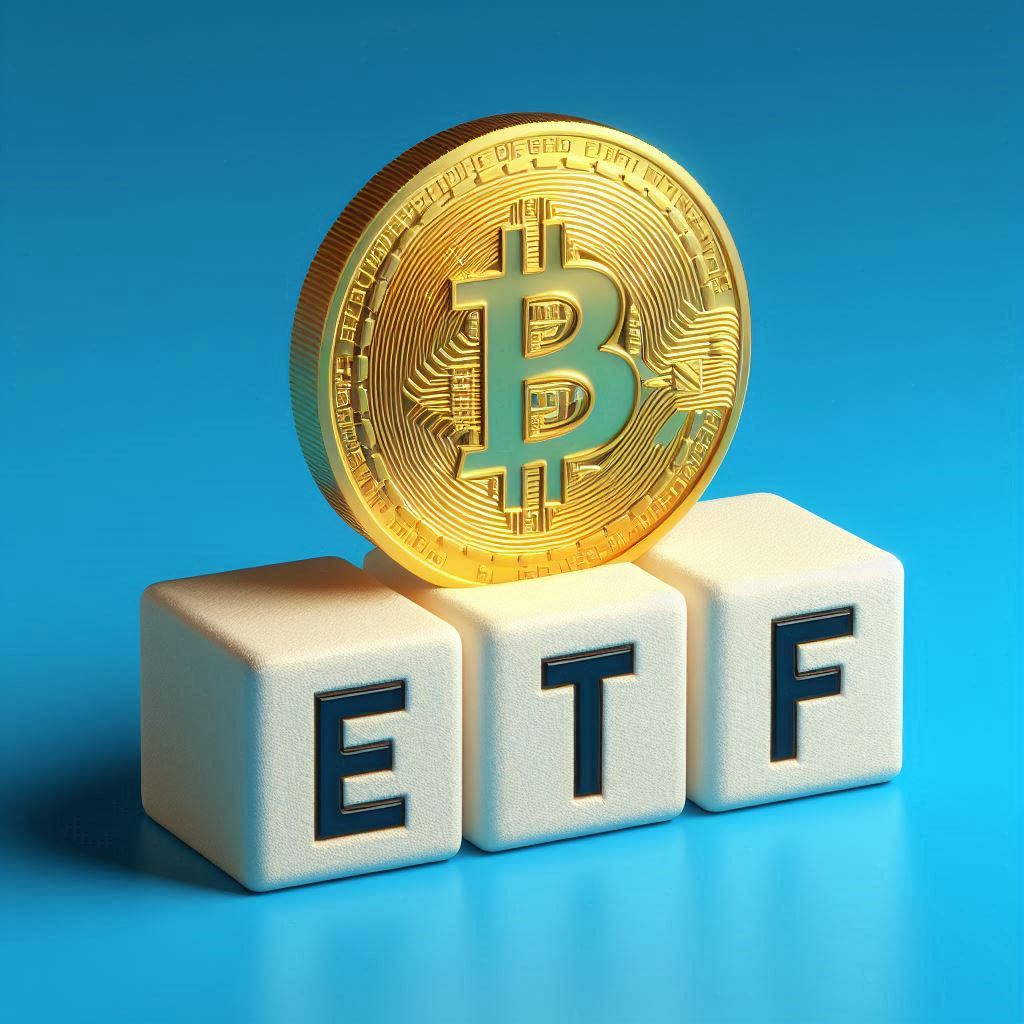ETF has become one of the most popular and essential investment tools in the modern financial market. With the rapid growth of the cryptocurrency market, ETFs related to digital assets, such as Bitcoin ETF and Ethereum ETF, have gained significant interest from investors.
This article will provide a detailed understanding of ETFs, various crypto ETFs, and the role of regulatory bodies like the SEC (U.S. Securities and Exchange Commission) in governing these financial products.
What is an ETF?

ETF is a type of investment fund listed and traded on stock exchanges like a regular stock. Each ETF typically replicates a financial index, commodity, bond, or group of specific assets. Owning an ETF allows investors to easily diversify their investment portfolios with low costs and high liquidity, as ETFs can be bought and sold throughout the trading day just like common stocks.
Key features of ETF include:
-
Diversification: Investing in an ETF means you are investing in a group of assets, helping to mitigate risk compared to investing in a single asset.
-
Low cost: Compared to traditional mutual funds, ETFs generally have lower management fees due to lower transaction costs and no sales commissions.
-
High liquidity: Investors can buy and sell ETFs during market trading hours, allowing them to seize investment opportunities and adjust their portfolios flexibly.
The Role of ETF in Investing

ETF not only provides an effective investment tool but also offers numerous benefits for investors:
-
Simplify investment: Instead of choosing individual stocks or bonds, investors can own a diversified portfolio with just one ETF transaction.
-
Save time and costs: Managing and investing in ETF requires less time than managing a traditional stock portfolio.
-
Suitable for various investment strategies: ETFs can be used in various strategies, such as long-term investing, short-term trading, or trend-following.
Common Types of ETF

-
Stock ETF: Track a group of stocks from a specific index, such as the S&P 500, Nasdaq-100, or a particular industry.
-
Bond ETF: Track groups of government bonds, corporate bonds, or debt-related investments.
-
Commodity ETF: Track the prices of commodities like gold, oil, or other precious metals.
-
Crypto ETF: Funds that track the prices of cryptocurrencies like Bitcoin ETF and Ethereum ETF, drawing significant attention from investors.
Bitcoin ETF and the Growth of Crypto ETF
Ethereum ETF and Regulatory Challenges (Ethereum ETF Regulation)
Similar to Bitcoin ETF, an Ethereum ETF is an investment fund that tracks the price of Ethereum. However, Ethereum ETF faces many challenges in terms of regulatory approval. Ethereum ETF regulation requires these funds to comply with strict requirements regarding transparency, security, and investor protection.
Currently, many Ethereum ETFs are awaiting approval from the SEC. This process not only requires a thorough evaluation of legal compliance but also considers the impact of ETF approval on the broader cryptocurrency market. Delays in approving Ethereum ETF can create significant uncertainty about Ethereum's price in the market.
The Role of the SEC in Regulating Crypto ETF
The SEC, or the U.S. Securities and Exchange Commission, is the primary body responsible for approving and regulating ETFs in the U.S., including crypto ETFs like Bitcoin ETF and Ethereum ETF. The SEC's role is to ensure that these funds comply with securities regulations, protect investor rights, and maintain the stability of the financial market.
The SEC is often very cautious in approving crypto ETFs due to concerns about issues like price volatility, liquidity, and security risks. The SEC's decisions on approving or rejecting a crypto ETF can have a significant impact on the value of the related cryptocurrencies, causing substantial market fluctuations.
The Importance of Regulation for Bitcoin ETF and Ethereum ETF

Regulatory frameworks from the SEC and other regulatory bodies play a crucial role in determining the development and liquidity of crypto ETFs.
-
SEC Approval: Approval not only opens up new investment opportunities but also helps enhance the credibility and legitimacy of crypto ETFs.
-
Regulatory Risks: Strict regulations can limit the growth of new funds while protecting investors from potential risks.
-
Market Impact: A rejection from the SEC can trigger negative reactions from the market, reducing the value of the related cryptocurrencies.
Conclusion
ETF are a valuable investment tool that gives investors easy access to different asset classes, from stocks to bonds to cryptocurrencies. Therefore, closely monitoring and understanding legal requirements is essential to make smart and effective investment decisions.